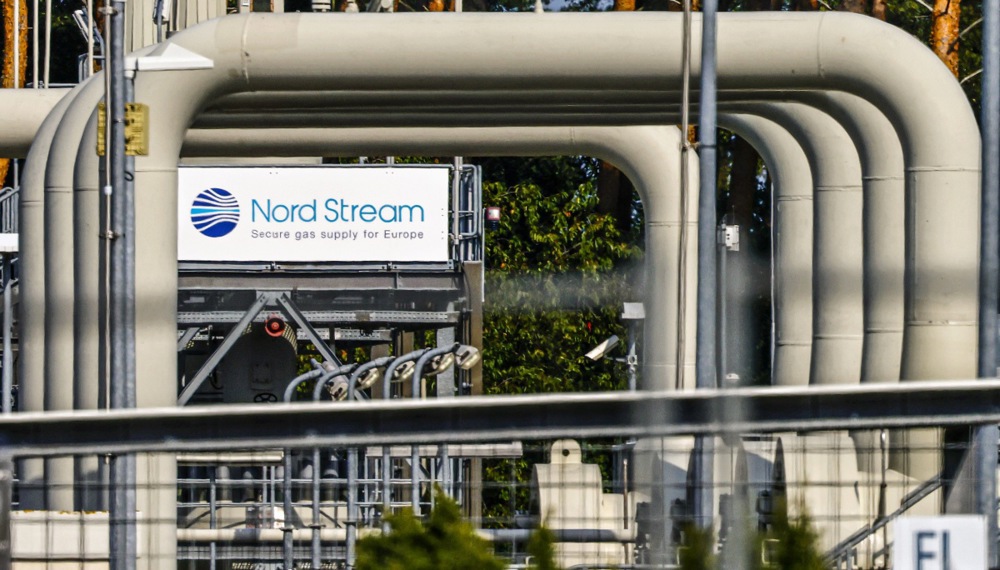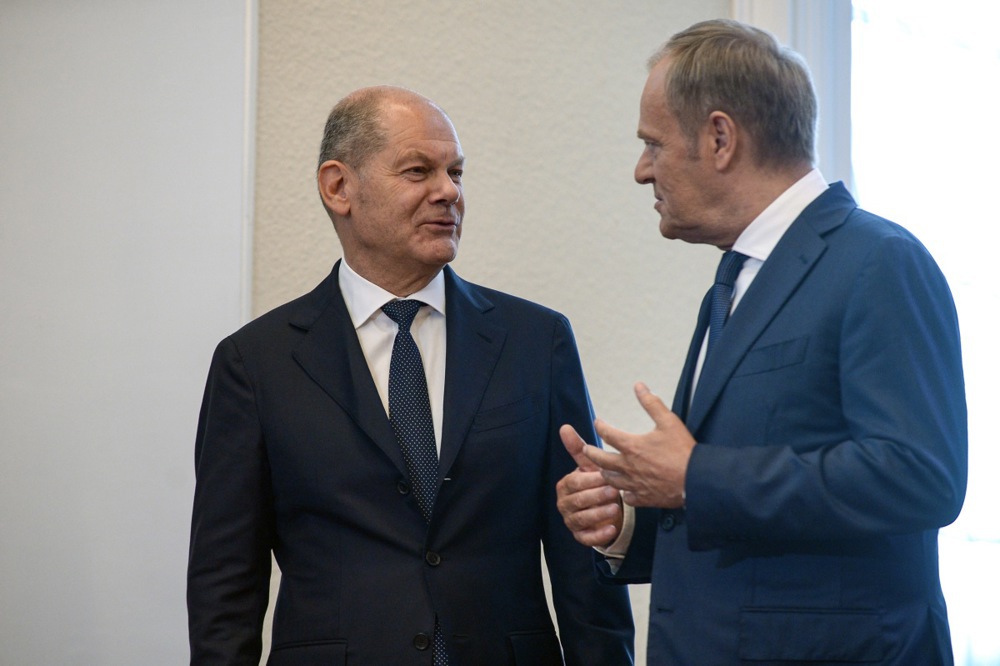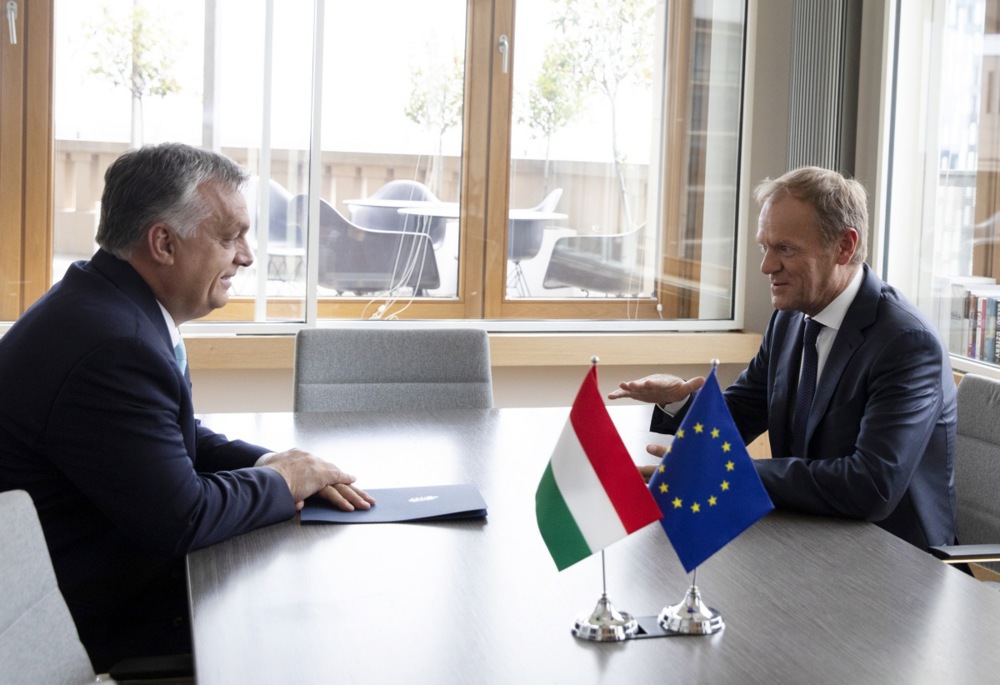Polish foreign minister Radosław Sikorski has warned Russian President Vladimir Putin against flying through Poland’s airspace on his way to any future meeting with US President Donald Trump in Hungary.
Sikorski said yesterday his country could be forced to act on an international arrest warrant issued by the International Criminal Court (ICC) if Putin did so.
Sikorski’s warning follows Trump declaring on October 16 that he planned to meet with the Russian President in the Hungarian capital Budapest. That was as part of his efforts to help broker an agreement to end Russia’s war in Ukraine.
Later yesterday, though, the White House announced that there was no date as yet for a Putin and Trump “peace summit” in the Hungarian capital. The US added that it would not happen any time soon because Russia’s current negotiating position over the war in Ukraine makes reaching an agreement impossible.
The Polish foreign minister made clear that Poland, which has acted as a hub for military and humanitarian aid for Ukraine, was not willing to help to facilitate this meeting in any way.
“I cannot guarantee that an independent Polish court would not order the government to escort such an aircraft down to hand the suspect over to The Hague,” Sikorski said.
He has consistently argued for NATO to give Poland the green light for shooting down Russian drones over Ukraine, according to Catholic broadcaster Radio Rodzina.
“I think the Russian side is aware of this. If this summit is to take place, hopefully with the participation of the victims of the aggression [Ukraine], the aircraft will have to take a different route,” the foreign minister said.
Sikorski also criticised Hungary, saying: “The fact that an EU member state, still bound by the International Criminal Court, invites President Putin is not only distasteful, it also shows that Hungary positions itself not as part of the West.”
On the same day, relations between Poland and Russia were confirmed to be at rock bottom when Polish Prime Minister Donald Tusk announced the arrest of eight alleged Russian operatives for spying and preparing to carry out acts of sabotage.
In recent months, Poland’s security services have detained 55 people for allegedly acting on behalf of Russian intelligence services, including the preparation of explosive devices and arson attacks.
In September, Polish forces shot down suspected decoy drones allegedly sent by Russia into its airspace.
Sikorski’s comments were criticised by his Russian counterpart Sergey Lavrov. He suggested that failing to guarantee the safety of Putin’s plane would amount to a “terrorist act” and accused Poles of supporting terrorism regarding the destruction of the Nord Stream gas pipelines.
“I heard here that Mr Sikorski threatened the security of President Putin’s plane in Polish airspace,” said Lavrov, according to news agency TASS, adding that it appeared “the Poles are now ready to commit terrorist acts themselves”.
“In Poland, a court officially made a decision justifying the terrorist attack on Nord Stream – and now the foreign minister is saying that, if a Polish court demands it, it will impede the free movement of the Russian leader’s plane,” he added.
Sikorski’s remarks were also criticised by Sławomir Mentzen, one of the leaders of the Polish right-wing Confederation party, who stood in this spring’s presidential election and came third with 15 per cent of the vote.
Mentzen said threatening to “intercept a plane carrying the president of a nuclear superpower to peace talks seems risky diplomatically and ineffective in practice, typical gesture politics.”
He may have been referring to the fact that Bulgaria, another EU member, has indicated that it would be ready to open its airspace for Putin’s aircraft and that Putin could reach Hungary without crossing another EU country by flying in across the Adriatic Sea, over Montenegro and Serbia.
Mentzen also recalled that, when there was talk of Israeli Prime Minister Benjamin Netanyahu – also wanted on an ICC warrant – visiting Poland for the 80th anniversary of the liberation of Auschwitz, the Polish Government said it was prepared to guarantee him free passage.
“Why does Poland completely ignore the ICC in one case but in another wants to obey the ICC, even risking retaliation from Russia?” he said.
The Hague-based ICC, to which all EU member states are party, issued a warrant for Putin in 2023, accusing him of the war crime of illegally deporting Ukrainian children.
Hungary, which has declared it wishes to withdraw from the ICC, maintains close ties with Russia and has said it will ensure Putin can enter and leave their country safely for any meeting with Trump.





